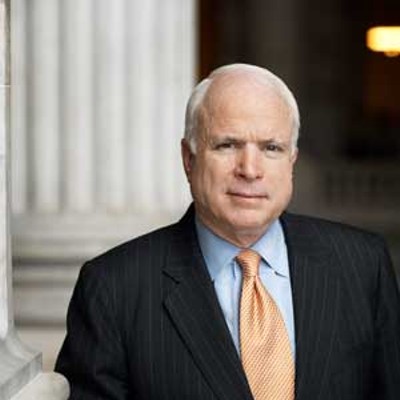The folks at Project Vote Smart are providing you with a chance to protect yourself with a free Voter's Self-Defense Manual, featuring a wealth of information about members of Congress, including campaign finance breakdowns, key votes and ratings by various special-interest groups, plus their addresses and phone numbers. Along with the manual, the organization is also offering a complimentary Internet directory of political websites.
But that's just the beginning of the services offered by Project Vote Smart, a non-profit, non-partisan organization dedicated to providing voters with the data they need to make informed choices at the ballot box. The organization sends every congressional candidate a National Political Awareness Test, which forces them to stake out their positions on the issues of the day, from abortion to tax policy.
Project Vote Smart was established right here in Tucson in the wake of Democrat Richard Kimble's failed 1986 U.S. Senate bid. After Kimble lost to Republican Sen. John McCain, his campaign staff was so dismayed by the political process that they began tossing around ideas of how to change the system.
"Everybody was disgusted with the way politics is practiced these days," says Adelaide Elm, a former Tucsonan who now serves as Project Vote Smart's outreach coordinator. "Increasingly, we felt by the way candidates run for office, through the polling they do, through tailoring their image or their message to their audience, whatever that audience is, and splashing that all over the airwaves and campaign literature that was mailed to us, that we didn't have any real knowledge about who these people were. What was lacking was information that we knew didn't have a hidden agenda or a slant or a bias on all those candidates who want to represent us."
As the group tossed around ideas, they hit upon the notion of a toll-free hotline where voters could find reliable, non-partisan information. Bankrolled by a few small grants, a handful of Tucsonans hooked up a 1-800 number in 1990 to see if anyone would call. The phones haven't quit ringing since.
In the mid-'90s, the organization's rise happily coincided with the emergence of the Internet. Project Vote Smart's website, which features an extraordinary array of political resources, allows voters to research candidates' positions, promises and personal backgrounds. During last spring's presidential primaries, the site was averaging more than 1 million hits a day.
Project Vote Smart's $2 million annual budget is funded through donations from average citizens and grants from foundations. The group refuses to accept contributions from corporations and special-interest groups. Although there are about 30 paid employees, the heavy lifting is done by a small army of interns who staff two offices. In addition to its longtime home at Northeastern University in Boston, Project Vote Smart recently opened its western headquarters at the Great Divide Ranch, a spectacular 150 acres nestled in the Rocky Mountains just a few miles from the Continental Divide in Montana.
Elm says even the organization's founders are amazed at how Project Vote Smart has grown. "We didn't dare to imagine what would happen," she says. "We would have stopped long ago if it weren't proving to be increasingly popular ... but I never expected it would grow so fast."
This year, Project Vote Smart will also tackle state legislative races, meaning the group is tracking an estimated 13,000 candidates this year.
The group is also compiling info on the presidential candidates, despite a lack of cooperation on the part of both the Democratic and Republican nominees.
Elm says both George W. Bush and Al Gore "went to ridiculous lengths not to provide this issue-oriented information in our national political awareness test to the public. Both Bush and Gore refused to make that information available."
Then there's Bill Bradley, Gore's main rival in the Democratic primaries, who spoke often about reducing the cynicism in politics. Bradley was a member of Project Vote Smart's board of directors, but he couldn't find the time to take the National Political Awareness Test.
"His campaign said, 'Oh yeah, we're going to do it, we'll do it, we'll do it,' and then of course it didn't come in and they said they didn't like the format of it and blah, blah, blah, so we had some conversations with the campaign and said board members who don't put their money where their mouth is don't stay on our board," says Elm.
Bradley resigned before the next board meeting.
For your free copy of the Voters' Self-Defense Manual or the Vote Smart Yellow Pages, call 1-888-868-3762. (That's 1-888-VOTESMART.) Visit Project Vote Smart online at www.vote-smart.org.















